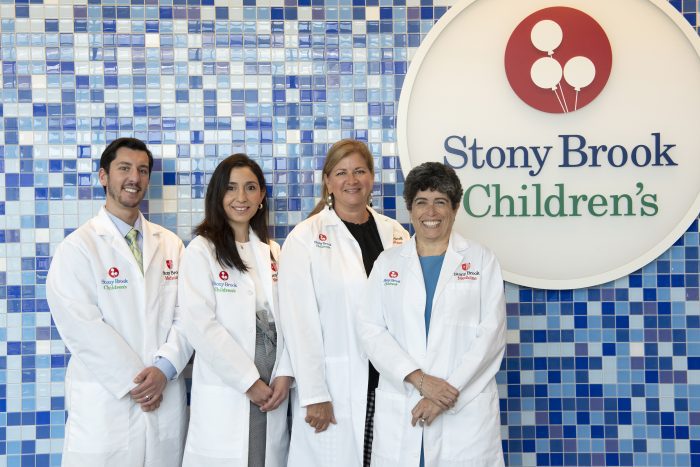SBU opens new regional tick-borne center in Hampton Bays

Stony Brook University is planning to open the first and only dedicated tick clinic in the northeast on Monday.
Supported by doctors from Stony Brook Medicine’s Meeting House Lane Medical Practice and Stony Brook Children’s Hospital, the new regional tick-borne disease center, which is located in the Hampton Bays Atrium, will provide by-appointment treatment for children and adults for tick bites and diagnose tick-borne illnesses.
The timing could be especially important for people with tick bites, as the previous warm winter allowed more ticks and their eggs to survive.
“They are out there, happily laying eggs and the eggs will hatch,” said Dr. Sharon Nachman, chief of the Division of Pediatric Infectious Diseases at Stony Brook Children’s Hospital.
Brian Kelly of East End Tick and Mosquito Control donated the center’s suite which includes a reception area, two exam rooms, two private offices for consults and a nurse’s station, for 10 years.
“Between the beautiful weather in the winter and the nice weather in the summer, ticks are outside,” Nachman said. “I’m thrilled we’re doing it now. There’s no time like the present to move forward and work with the community to get this done.”
Tick checks
Health care providers urged parents, caregivers and anyone who spends quality time in nature to do regular tick checks.
Ticks can be so small that they look like a little freckle. These ticks can harbor diseases beyond the dreaded and oft-discussed Lyme Disease. Other diseases include babesiosis, ehrlichiosis and anaplasmosis.
In general, Nachman urged patients not to send ticks they pulled off themselves into the center.
“It’s the tick that they didn’t see that’s also putting them at risk,” she said. The clinic will determine the type of tests to run based on the symptoms.
For tick bites, as with many other health challenges, time is of the essence.
A tick that’s attached itself to a human for fewer than 48 hours likely won’t lead to an infection. Someone with a tick bite for about 48 hours might get a single dose of an antibiotic. People who had a tick bite for over that period might develop a rash or even facial palsy, in which one side of the face droops for an extended period of time.
Doctors work with patients to try to hone in on the date of a possible tick bite.
“We do pretty good guessing,” said Nachman. “We don’t need to be perfect: we need to be pretty close.”
Ticks are present throughout Suffolk County.
Health care workers urge people to spray their clothing with DEET. While ticks aren’t always easy to see, people can find them by feeling a new lump or bump on their skin.
Removing ticks
Nachman advised people to wipe an area with a tick down with alcohol before trying to remove an embedded insect.
Using a flat edged tweezer, the tick removers should grasp the insect and slowly back it out.
“Don’t grab the tick and yank,” Nachman cautioned. The mouth parts of the tick have an adhesive, which can leave some of the parts inside the infected person.
Nachman, who will be at the center on Mondays, also urged people not to use petroleum jelly or match sticks.
The hours at the center will adjust to the demand. In the winter, when ticks are less prevalent, the center may have more limited appointment times.
One of the advantages of the center is that the health care providers can track patients over time who have been infected.
Doctors can also sign patients up to become a part of a registry. By tracking people who have tick-borne infections, doctors might also address questions that are part of the science of diseases like Lyme.
“There may be better treatments or better tests” down the road, Nachman added.





